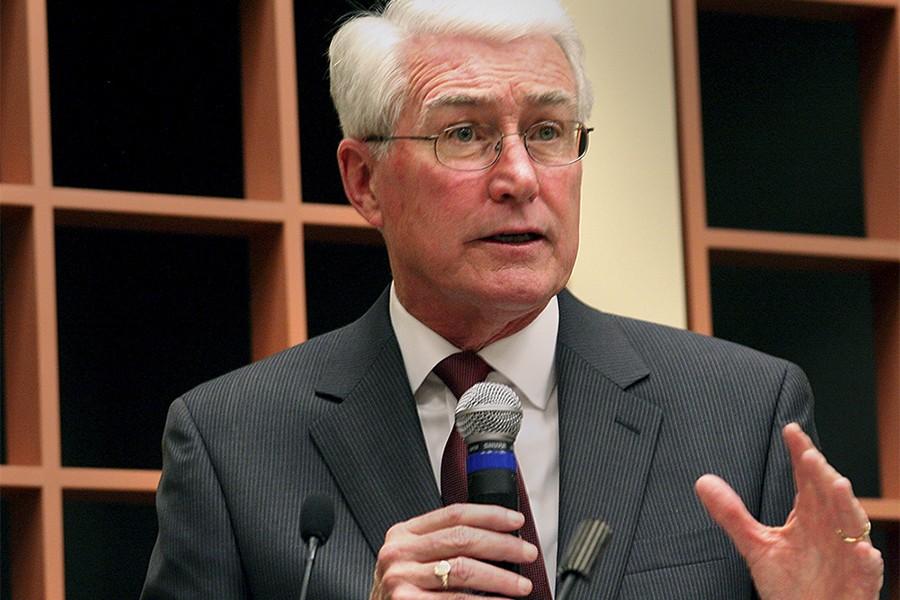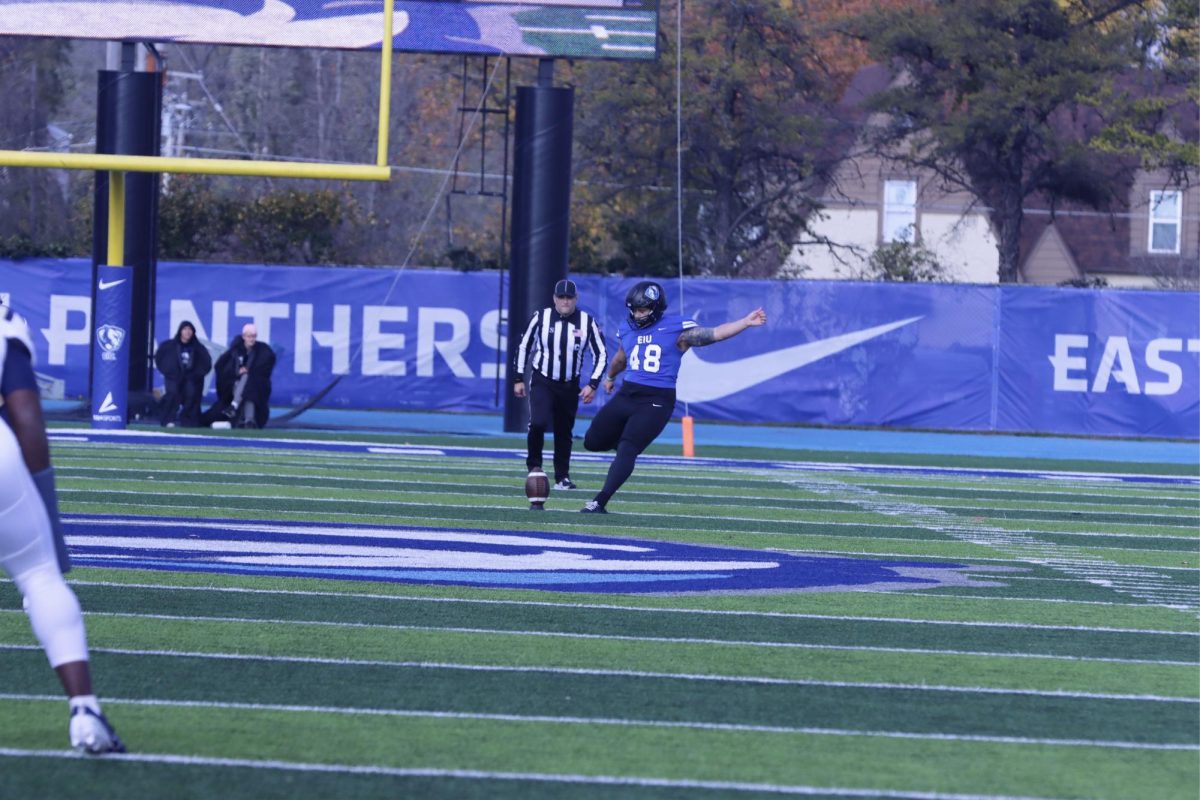Voters reject constitutional convention
With 68 percent voting no, Illinois voters decided against the constitutional convention.
Under the current constitution, the question whether or not to call a constitutional convention has to appear on the ballot every 20 years.
With 92 percent of precincts reporting, the constitutional convention referendum had 2,761,831 no votes (68 percent) and 1,313,853 yes votes (32 percent).
“It was exactly what I would assume the outcome would be,” said David Carwell, a political science professor. “I’m hard pressed to think of any political organization that supported the constitutional convention.”
He said the convention was only on the ballot because it had to be, not because any political organization wanted it on the ballot.
“I don’t think there was any question on anyone’s mind that there was the slightest chance it was going to pass,” Carwell said.
He said a great deal of money, time and effort was put through to defeat a convention from being enacted.
Carwell said whether the system in Illinois is corrupt or not, organizations and institutions understand the way the system works.
He said if the constitution was changed, there’s no idea what would happen or what would be changed.
“We know how to work in the existing system, and let’s keep it that way,” he said.
He said it is perhaps better to have a corrupt, unethical system one knows how to work with, as opposed to a more moral system where organizations do not know how to get what its constituents want.
Carwell said one thing a political scientist will tell a person is that when a person puts something on the ballot asking yes or no, it does not matter what, the tendency for people will be to vote no.
Grant Sterling, a philosophy professor, said he was neither happy nor disappointed with the outcome of the convention.
“I sort of expected it would be defeated, although it was surprising it was defeated so overwhelmingly,” he said.
Sterling said if a convention had been held, it would have provided the opportunity to possibly do things that needed changing.
He said a convention could have revised the relationship between corporate taxes and income taxes
“I think that could have been a beneficial outcome of the constitutional convention,” Sterling said.
With the current system, corporate taxes cannot be raised without also raising income taxes and vice versa.
“I think that’s an undesirable thing,” Sterling said. “State legislature should have flexibility.”
Another benefit that could have resulted from a convention is the way K-12 schools are funded, he said.
“Some people have said we ought to increase income taxes to pay for school funding,” he said.
In this process, property taxes would be reduced drastically, which currently must be high to fund schools well.
Sterling said there is no guarantee a constitutional convention would have gone that way.
The University Professionals of Illinois had been strongly against a constitutional convention.
Charles Delman, president of Eastern’s Chapter of UPI, said he was thrilled with the outcome of the election.
“I think it shows Illinois voters know nothing is wrong with the constitution, just wrong with politicians we elected,” he said.
Delman said the fact that people overwhelmingly voted no indicates people understand the issue even though some changes may be needed.
To make changes, Delman said a convention is not necessarily needed.
“Yes, we do need school funding reform,” Delman said. “Yes we do need more support for higher education, and changes to the tax code to make it fairer and progressive. We need sufficient revenue to fund state government to provide the services we need.”
But those are legislative issues not constitutional issues, Delman said.
“We need all that, but the legislature can do that,” he said.
English professor Linda Coleman said fundamentally she believes it is good to address issues one by one rather than all at once which a convention would do.
“Well my understanding of the proposal, the possibility of the convention, was that it was an attempt to solve problems in a way that didn’t need solving in that way,” Coleman said. “That the concerns that people had and wanted addressed by a convention could be done in other ways that were far less costly.”
Coleman said the outcome was what he was hoping for.
“(A constitutional convention) seemed unnecessary to me,” she said.
Emily Zulz can be reached at 581-7942 or at eazulz@eiu.edu.


































































